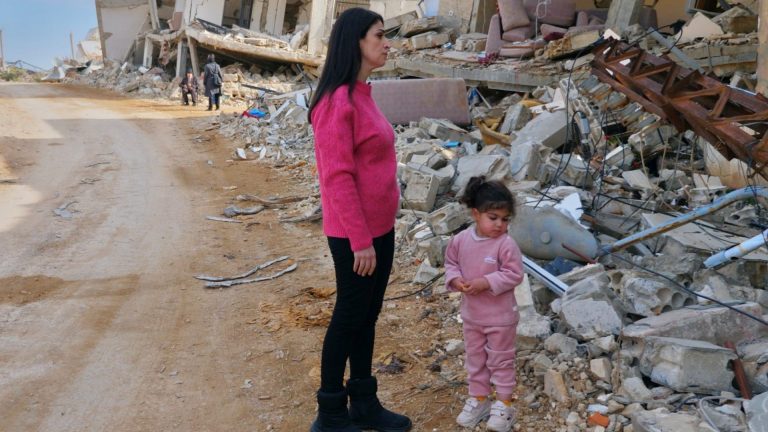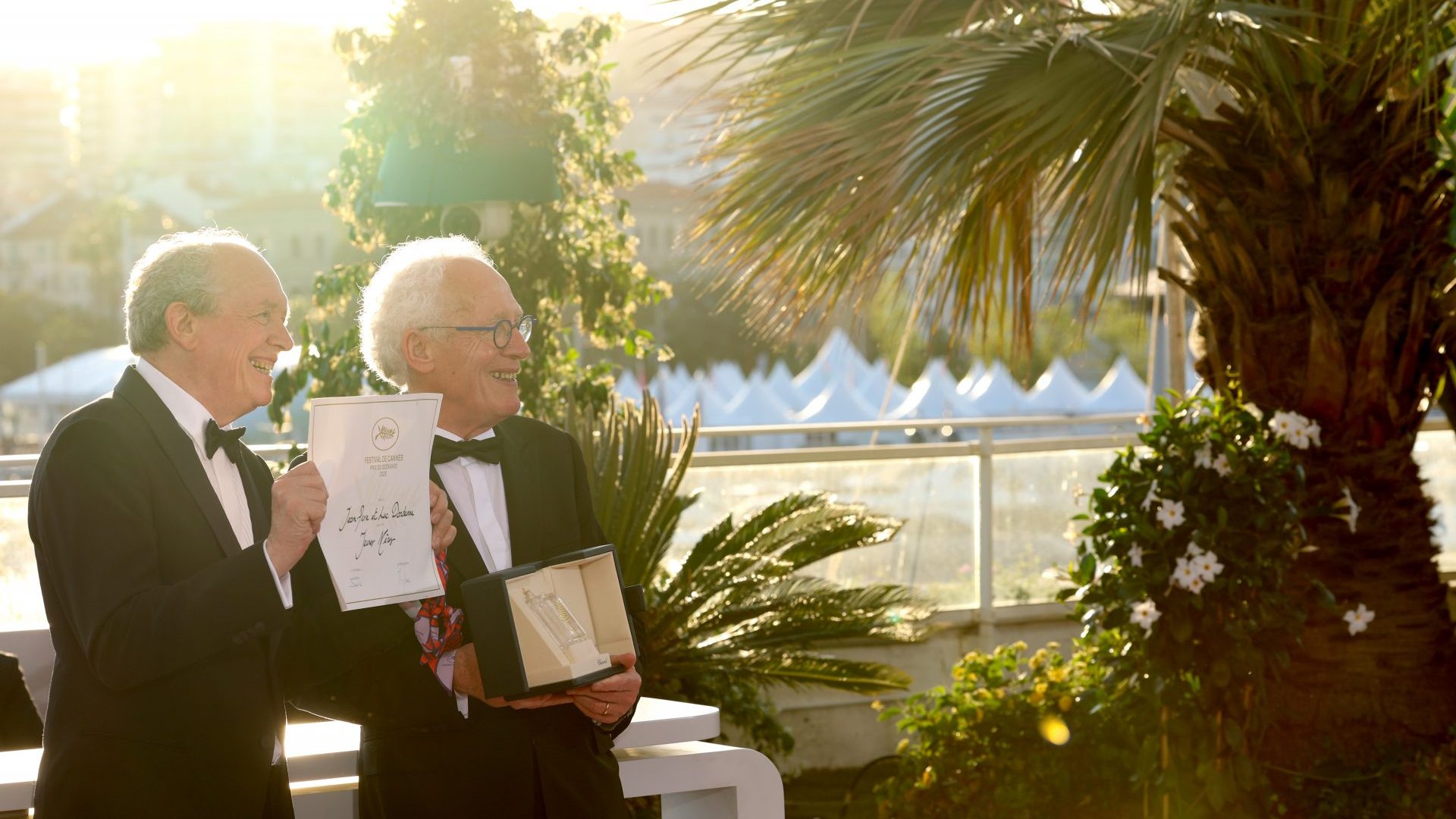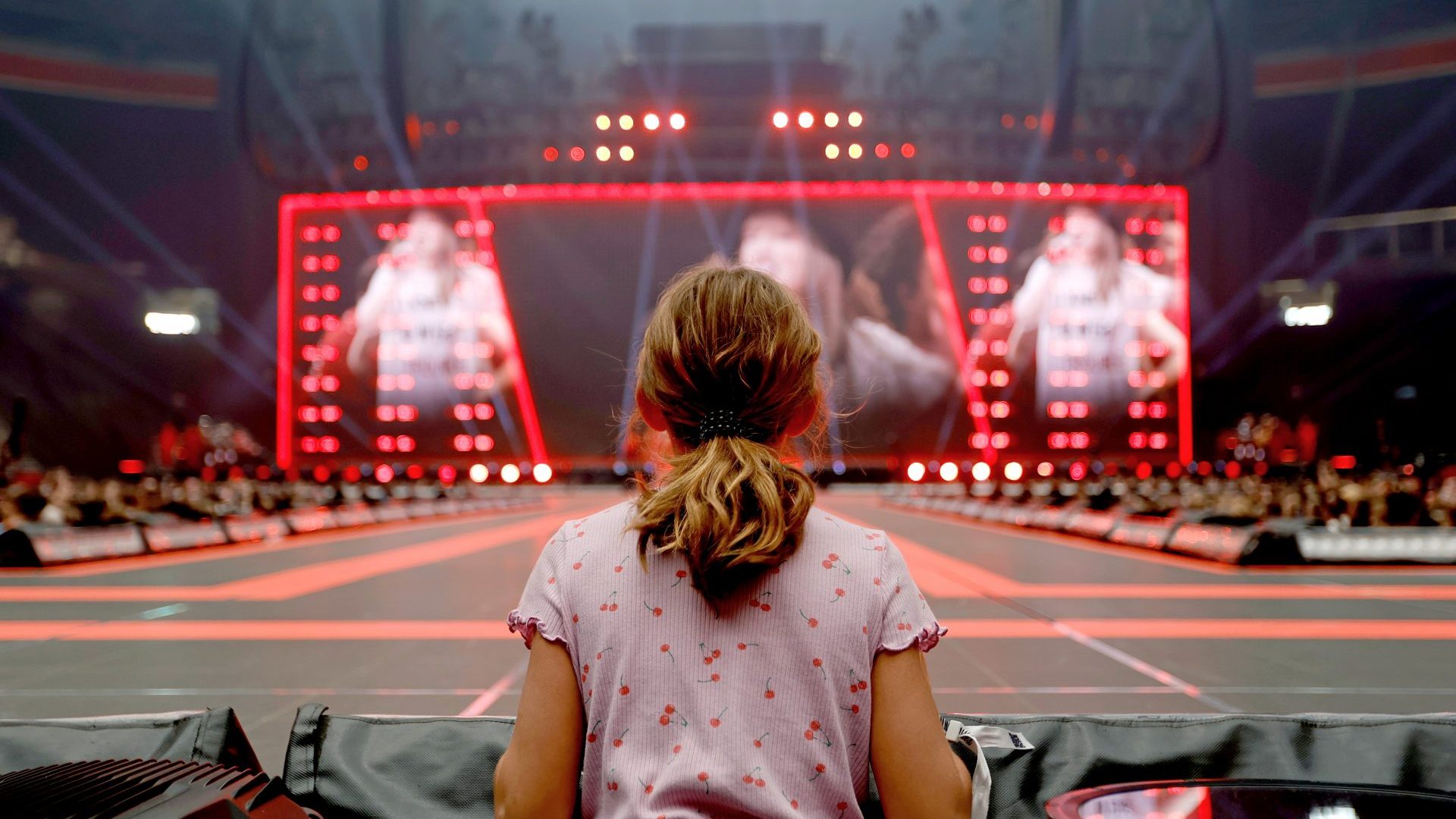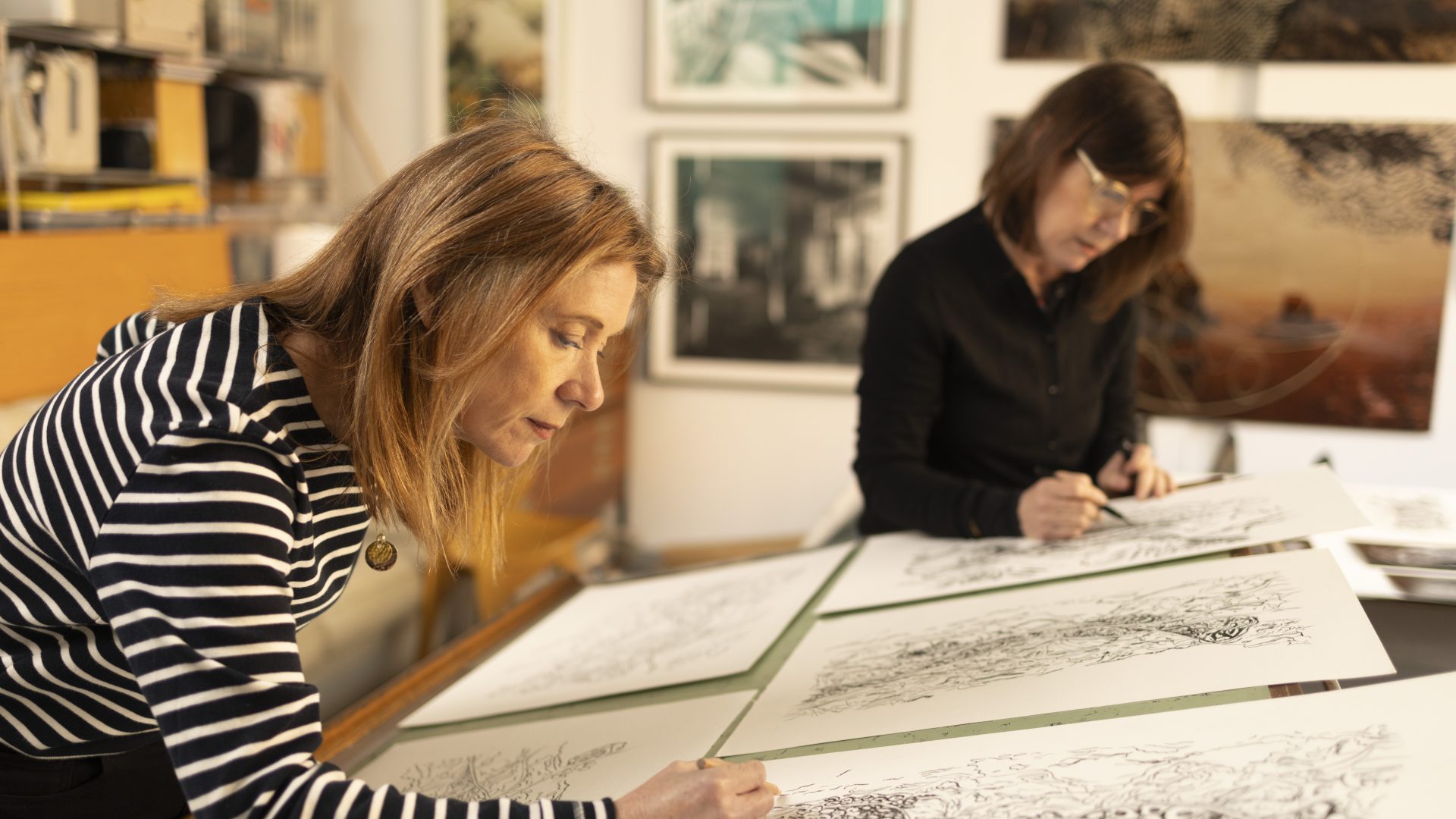Winning the Palme d’Or twice has made the Dardenne brothers, Luc and Jean-Pierre, key members of world cinema’s most unique club.
A third Palme is the record everyone’s waiting for them to claim. But despite their regular appearance in the lineup, it’s as if Cannes is trying not to give them the big honour: they’ve also won most of the other prizes on offer there, including best director(s), screenplay (twice), prizes for their actors, the Grand Prix runner up trophy, and even one specially created for them: the 75th Anniversary Prize.
Their latest film, Jeunes Mères (Young Mothers) earned them their second Screenplay prize at Cannes last May, a brilliant and emotional movie up there with their best work, that must have been close to giving them that record-breaking hat-trick.
You recognise their films almost as soon as they grab you and pull you into their gritty world. It’s a singular, naturalistic style, much imitated by others now, but shot through with a rare humanism and compassion amid the bleakness of their visions of a marginalised Belgian society.
Set in a maison maternelle, a sort of shelter for teenage expectant mothers who might not want their babies, Young Mothers is typical of the brothers’ work, yet disarmingly tender and moving. It’s even sweet at moments, with cute babies lighting up the screen, eliciting cooing “aahs” from the audience, something I never thought I’d see in a Dardenne film. Are they getting soft in their dotage (Luc is 71, Jean-Pierre 74), mellowing as they settle into being grandparents?
“Non, non, non,” they both say, as one. They’re a chatty, affable pair who finish each other’s sentences. Luc looks like a kindly GP and is the more talkative, while Jean-Pierre is the more animated, his eyes dancing behind bright blue glasses, the sort worn by a venerable German ad exec, their colour offset by the shock of white, professorial hair.
“We didn’t put babies in our film to get sympathy, or laughs,” says Luc. “The subject of the film demanded children, and they were real babies of course, as we try to be authentic in all things. Some of them were the actual babies of the cast, babies born during the making of the film, since when we auditioned some of these young mothers, they were pregnant with these children. You could say we screen tested these babies in the womb.”
You don’t get much more authentic than that. And though some of the cute babies do steal a scene or two, the audience is primed to feel affectionate toward them by the connections we’ve built to their young mothers, such is the skill with which their individual stories unwind and intertwine under the gentle but intense gaze of the Dardenne camera.
There are five main mothers, each with their hardships and fears. One is let down by a feckless boyfriend just out of prison; another can’t return home because her own weak mother continues to harbour a lover who beats her, and the daughter; another girl seeks a home with her older sister, above a travel agency. And one, heartbreakingly, is looking to be reunited with her own mother and find out why she was given up for adoption.
“It is typical for us, these stories of young people facing the world alone,” says Jean-Pierre. “When we make the film, there are many people around on the set, surrounding the actors. So it’s only whenever I watch our films, I’m always struck by how lonely they are up there on the screen.”
Young Mothers gets right to the heart of the Dardenne universe: young people faced with moral and social situations that force them to make huge, adult decisions. In their breakthrough film La Promesse, it was the teenage Jeremie Renier in his first film, wrestling with his father’s exploitation of migrant labour; in the extraordinary Palme d’Or winner from 1999, Rosetta, it’s Emilie Dequenne fending for herself to get jobs and tend to her alcoholic mother; in L’Enfant, it’s Renier again, trying get back the baby he’s given away; in the wonderful The Kid on the Bike, it’s a sullen boy looking for love and finding it, briefly in Cecile de France’s compassionate hairdresser…
“I have great hope in the young generation,” says Luc.
I mention that what I find remarkable in their films is a lack of judgement of the character’s behaviour. We might, as viewers or as parents or citizens, take a view on their actions and often grim situations, but the directors do nothing to influence our thoughts.
Suggested Reading


Crime scene cinema from Gaza
Maybe that’s why Jean-Pierre feels the characters are so lonely up there on the screen: we want to reach into the movie and help them, or scold them, or shake them or scream at them, but we can’t do anything to avert often calamitous outcomes. You just watch and say, oh no, don’t do that, don’t turn on the gas, don’t steal that, don’t shop your Dad to the authorities, or do. You can feel quite helpless watching a Dardenne film.
“I like that you feel that way,” says Luc, “because in reality their stories aren’t always happy endings, but we always leave a light on, always a glimmer of hope, because I have great faith in these people. I couldn’t make films about them if I didn’t feel that. They’re young people and there’s still a lot of future ahead of them, still time to alter their course.
“The important thing I think to myself when I watch is: what will they do with the hope we give them? In real life it might not be so clear for such people but in our films, at least, we allow room for there to be a choice, to do something to change your path. That’s the hope.”
Care and duty, loyalty and parenting are recurring themes in these movies. Often, it comes down to a question of state care, too. Do we want to live in a society that does provide social care? Although they’re often compared to our own double Palme d’Or winner Ken Loach, the Dardennes’ films are less overtly political. Watching Young Mothers, with these five storylines connecting in a state-funded care facility, the generational aspect of parenting is to the fore. Who should care for these people? Is it up to the state to do so? Should we feel lucky to live in a society that does provide, however meagrely, for its vulnerable and marginalised?
Such is their filming style, you feel like you’re eavesdropping on a life for the 90 minutes or so that their films tend to last. There was a life before we join the action, and there will be one after we leave it. I believe that, for the duration of a Dardenne film, it’s we the audience who care the most. Or are the only ones who care at all.
For all their trademark naturalism and realism, these directors are, in their own way, working as much of a spell as any Hollywood escapism. As Luc admits: “Reality is very carefully constructed in our films.”
It’s just that all their locations, all their stories and inspirations are local, set in Liège, where they grew up and still live. They support the local football team: unsurprisingly, it’s the underdog side, Royal Football Club de Liège (RFC Liege), rather than the more celebrated Standard Liège.
Have they never wanted to venture out, widen the scope? “Yes, a few times, but it’s never succeeded,” says Luc. “You can find every story, every human emotion right on your doorstep, that’s what we have discovered. And we see that the stories in our local newspaper are more personal, more resonant than the world headlines.”
“So we stay with what we know and where we know,” says Jean-Pierre, “and we have a deep love for our town and for its people and the way it changes and grows and reconstructs over time. You can trace a history of it in our films.”
There are so few wide shots in their films that you rarely get a glimpse of the town or the full streets. Their characters lurk behind corners, trapped in rooms with boxes, the back of restaurants or waffle stands, warehouses and workplaces, framed tight against bus stops or arguing inside cars, or buzzing around on motorbikes in rare moments of wind in the hair freedom or escape. We get to know the back of their heads as much as their faces.
Have they ever thought of not working together, like the Coen brothers now? “Never,” they both chime.
“If we couldn’t make films together, I personally would go and do something else. So I could work alone, but not on a film,” says Luc, looking up at his older brother, seeking some kind of assurance, which is forthcoming with a smile and nod.
“But we still have films to make,” says Jean-Pierre. “We’ve never done a musical, for example.” I raise my eyebrows, tantalised. Could that happen? The brothers look at each other, for once not knowing who should answer this or how to answer it. They both shrug.
I guess that’s another glimmer of hope, then, another light shining on what is already one of the most remarkable careers and bodies of work in all cinema. Who knows? Remember: that third Palme d’Or is theirs for the taking…
Young Mothers is out now in the UK




